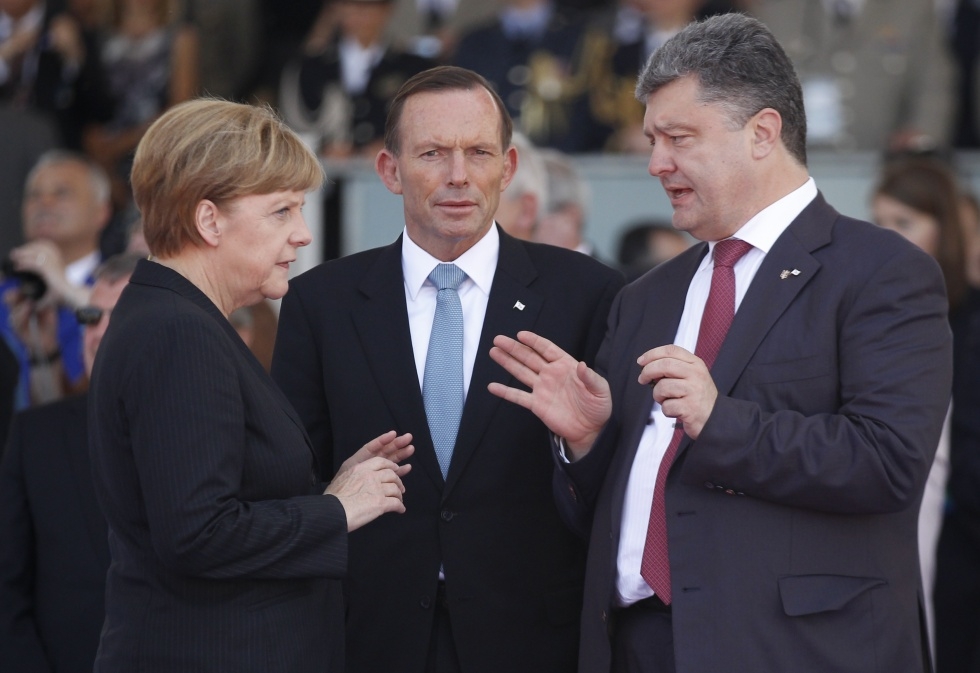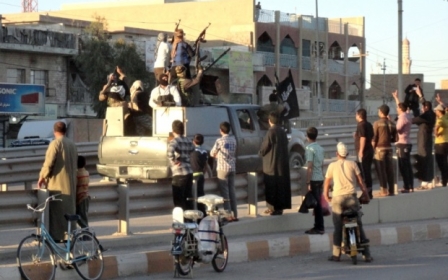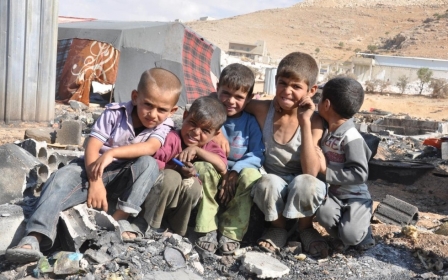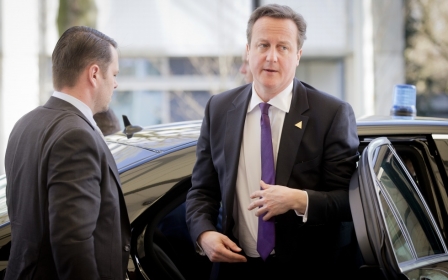Iraqi Kurds to receive arms from Australia, Germany

Australian Prime Minister Tony Abbott on Tuesday said "extreme force" was justified in battling Islamic State militants, as his country will "in coming days" join ally the United States in an international effort to transport weapons to Kurdish forces in northern Iraq.
The announcement came as German Chancellor Angela Merkel on Monday defended a watershed decision to send arms to Iraq's Kurds, saying Europe's own security was at stake.
While Abbott has insisted Canberra will not be sending combat troops to the conflict, he has stepped up his rhetoric against IS.
On Tuesday he compared them to the Nazis and communists.
"We've seen in the century just gone, the most unspeakable things happen, but the atrocities that were committed by the Nazis, by the communists and others, they were ashamed of them, they tried to cover them up.
"This mob, by contrast, as soon as they've done something gruesome and ghastly and unspeakable, they're advertising it on the Internet for all to see which makes them, in my mind, nothing but a death cult.
"That's why I think it's quite proper to respond with extreme force against people like this."
Abbot's comments came as Ban said that the entire world community should be alarmed at what was happening.
"The international community must ensure solidarity. Not a single country or organisation can handle this international terrorism.
The UN chief gave tacit support to plans to airlift arms to Kurdish forces.
Australia is gearing up to fly a C-130 aircraft to the Iraqi capital Baghdad for customs clearance "in coming days", before heading to Kurdish-controlled Erbil.
The plane will then reportedly land to hand over weaponry, which will include mortars and rocket-propelled grenades.
"Obviously, flying into a war zone, combat zones, air drops, even humanitarian air drops into combat zones are full of risk, but the risks are reasonable given the importance of the missions they're flying," said Abbott.
Merkel says arms for Iraqi Kurds will defend Europe
Meanwhile, Merkel told parliament that Germany's move to break with a post-war policy of refusing to send weapons into conflict zones was crucial in strife-torn Iraq, the scene of "inconceivable atrocities" against civilians.
The German government announced late Sunday that it would send military equipment including anti-tank rocket launchers, rifles and hand grenades, to Iraqi Kurds fighting IS militants.
Merkel said that an estimated 400 German nationals had travelled to Iraq and Syria to fight on the side of the militants, who were threatening the stability of the entire region.
"We must fear these fighters could return one day" and mount attacks in European cities, she said.
"The enormous suffering of many people cries to the heavens and our own security interests are threatened."
The German leader added that if "terrorists are allowed to subjugate an area in order to create a haven for themselves and other terrorists, the danger grows for us as well".
Merkel firmly dismissed opposition accusations that the German weapons could fall into the wrong hands, or that Germany was embarking on a slippery slope toward "militarism".
After a three-hour debate in the Bundestag lower house, lawmakers overwhelmingly approved the shipment in a non-binding vote backed by Merkel's large majority.
Opposition deputies complained that the parliament had not had a real say in a vote with wide-reaching consequences for German foreign policy
The German equipment, which will be delivered in three stages, will include 30 anti-tank missile systems, 16,000 assault rifles, 8,000 pistols as well as portable anti-tank rocket launchers, the defence ministry said.
As well as weapons, Germany plans to send other items such as tents, helmets and radio equipment.
The first deliveries will be able to equip about 4,000 soldiers by the end of September.
The equipment, which has been taken out of German army reserves, is valued at 70 million euros ($92 million). A total of around 50 million euros in humanitarian assistance has also been earmarked.
Meanwhile the Bundeswehr army plans to bring a small group of Kurdish peshmerga fighters to southern Germany for a week's training with the equipment.
However supplying military hardware is unusual for Germany which, burdened by its past aggression in two world wars, generally shies away from foreign military engagements and as a rule does not export weapons into war zones.
The government shift has been controversial among the public, with opinion polls have showing strong opposition to arms shipments to Iraq.
Sixty percent of respondents were against the idea, and only 34 percent in favour, in an Infratest dimap poll for ARD public television published Friday.
New MEE newsletter: Jerusalem Dispatch
Sign up to get the latest insights and analysis on Israel-Palestine, alongside Turkey Unpacked and other MEE newsletters
Middle East Eye delivers independent and unrivalled coverage and analysis of the Middle East, North Africa and beyond. To learn more about republishing this content and the associated fees, please fill out this form. More about MEE can be found here.




